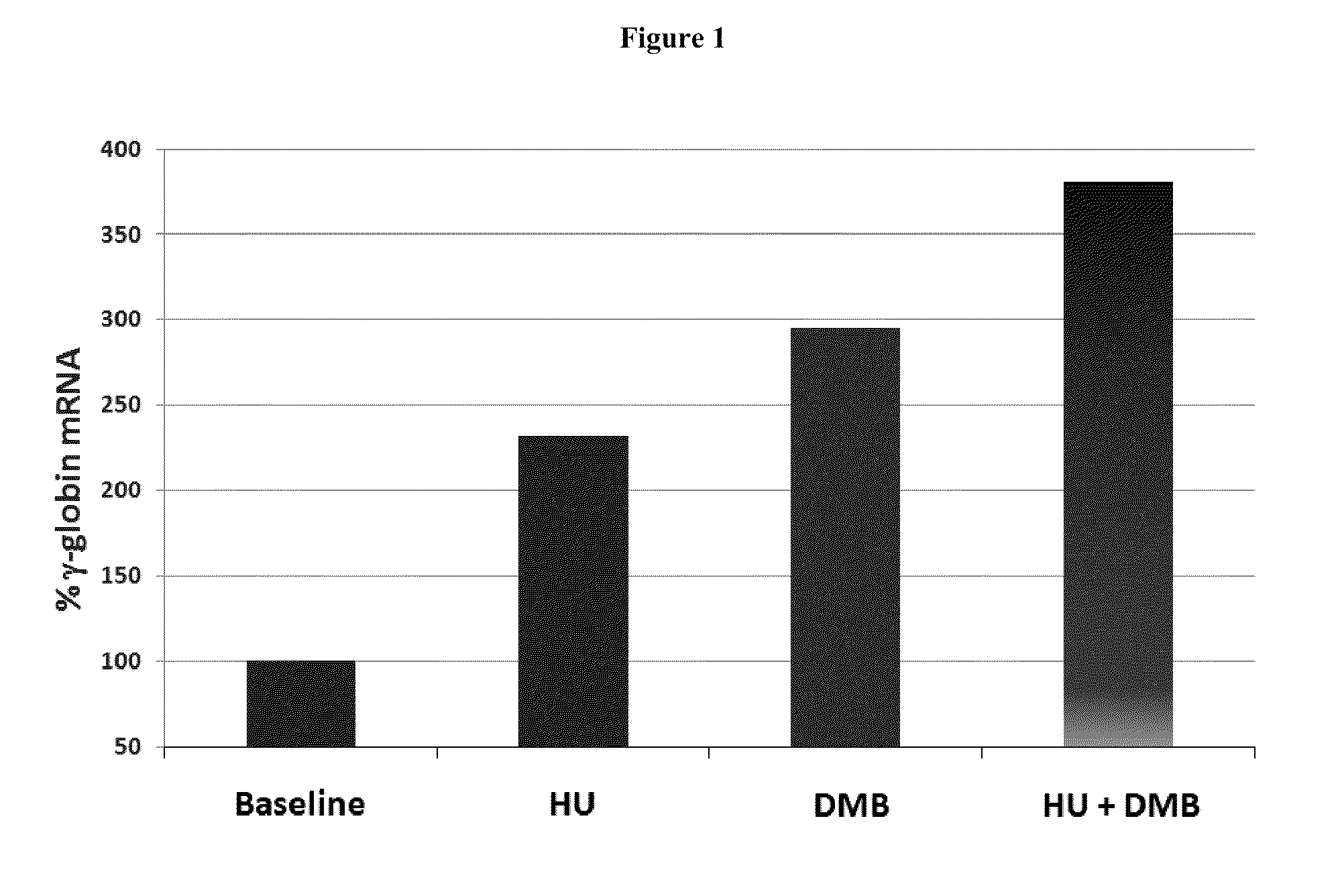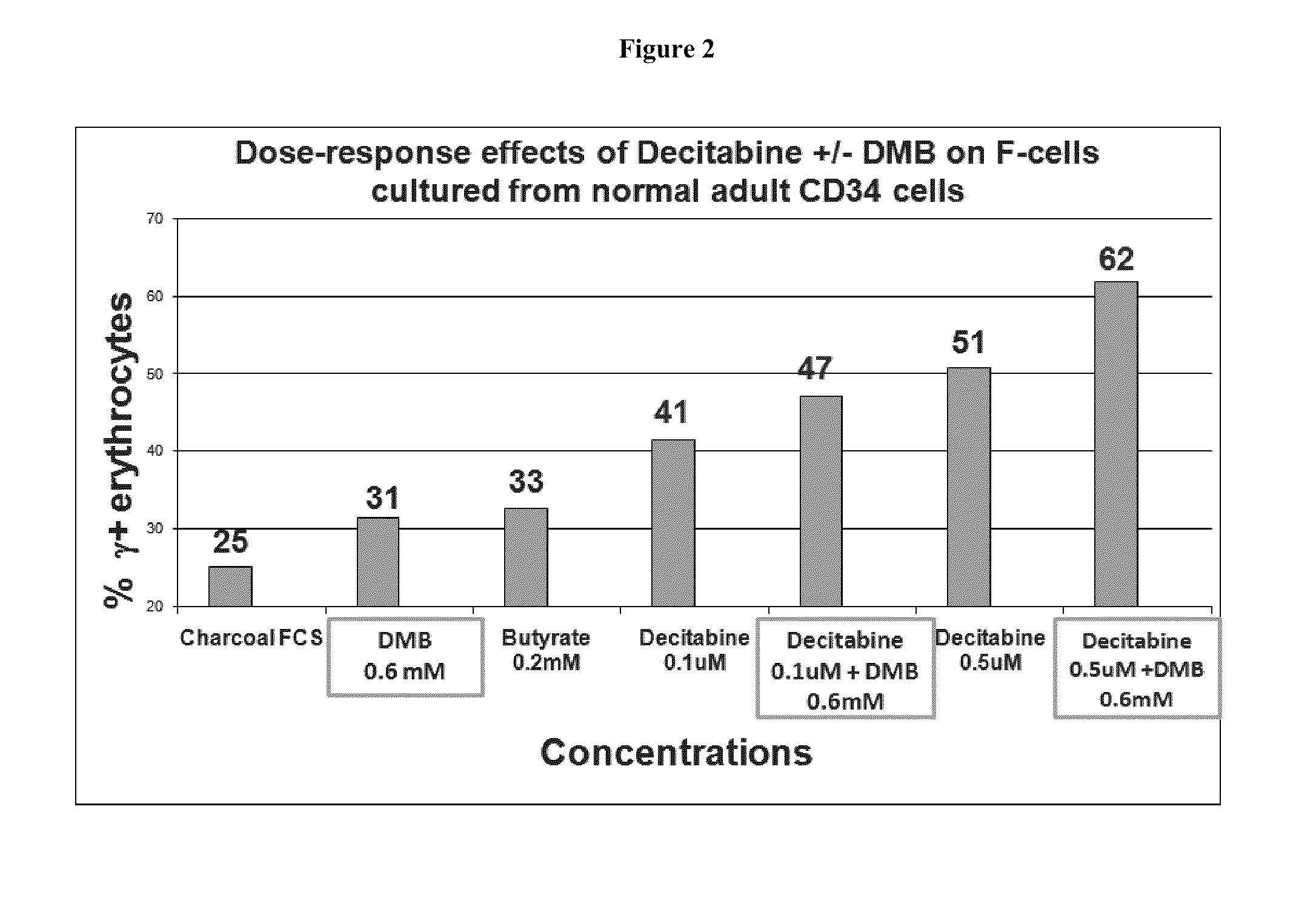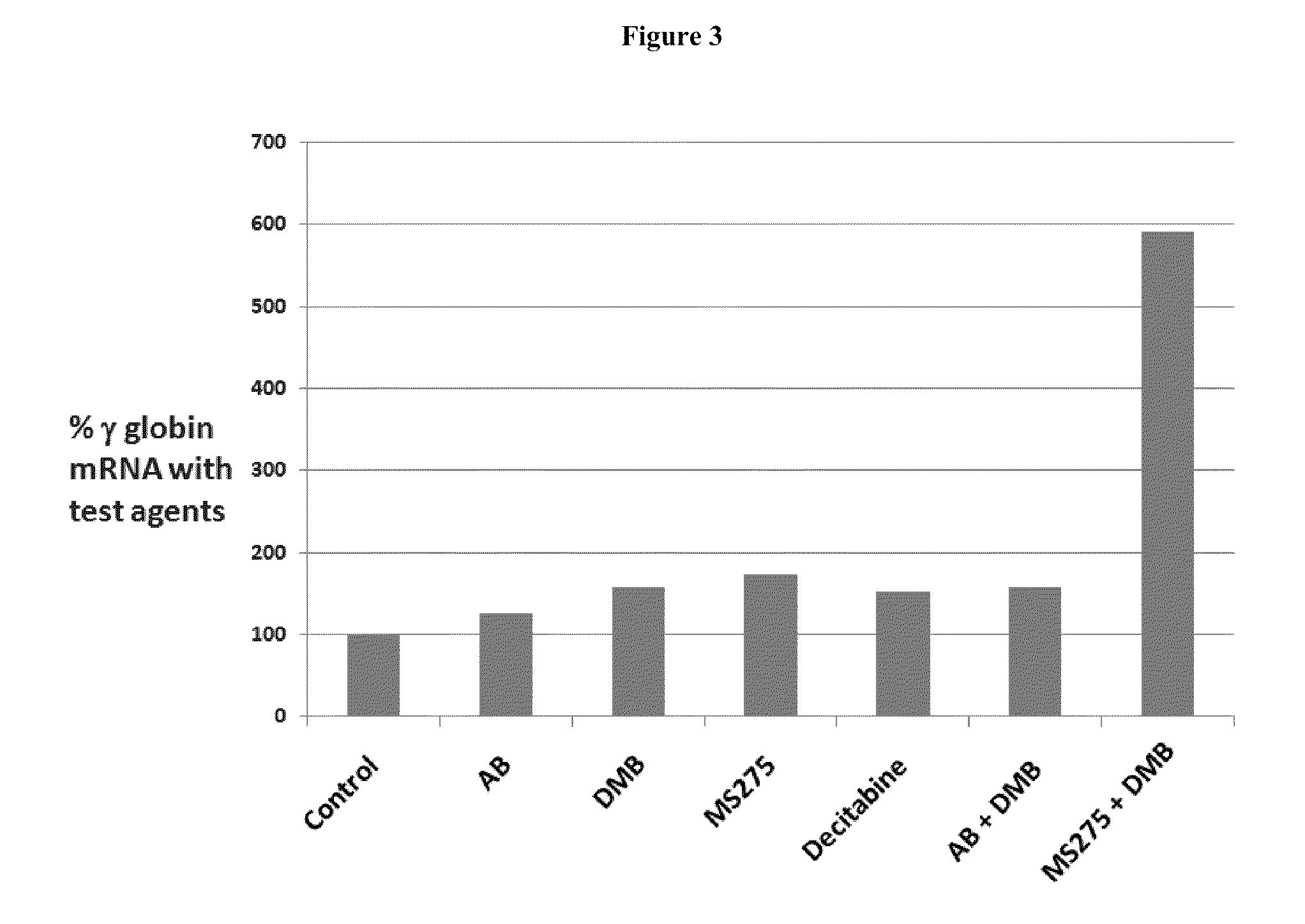Methods and low dose regimens for treating red blood cell disorders
a technology for red blood cells and low doses, applied in the direction of drug compositions, biocides, extracellular fluid disorders, etc., can solve the problems of affecting the normal function of red blood cells, so as to improve the number of f-reticulocytes increase the amount of fetal globin in the blood of the subject, and increase the number of f-
- Summary
- Abstract
- Description
- Claims
- Application Information
AI Technical Summary
Benefits of technology
Problems solved by technology
Method used
Image
Examples
example 1
Non-Clinical Pharmacology
[0215]Multiple in vitro and in vivo nonclinical studies have been conducted to evaluate the primary pharmacodynamics of DMB. The in vitro studies examined the level of fetal globin induction relative to total globin. In vivo studies examined fetal globin induction as well as stimulation of erythropoiesis and hemoglobin levels, and were conducted in normal mice, transgenic mice containing the beta globin human gene locus and in anemic baboons.
Fetal Globin Expression In Vitro
[0216]DMB was compared to arginine butyrate (AB) for its ability to induce y-globin expression in a double-luciferase reporter assay in murine erythroleukemia (GM979) cells transfected with the pLCR linked to the β- and γ-globin gene promoters linked to a different luciferase gene. The results were compared statistically to controls as shown in Table 2.
[0217]
TABLE 2Induction of Luciferase ActivityActiveConcentrationγ / (γ + β) globinMean FoldCompound(mM)Expression, RangeIncreaseControl, Untr...
example 2
Non-Clinical Safety Pharmacology
Cardiac Repolarization Studies In Vitro and in Beagle Dogs
[0227]Cardiovascular safety pharmacology assessments included an in vitro screen to evaluate the effects of DMB on cardiac ion channel and an in vivo evaluation of cardiovascular and hemodynamic effects in Beagle dogs. Electrophysiologic effects were evaluated in laboratory studies utilizing voltage-clamped human embryonic kidney cells transformed by adenovirus cDNA and transfected with cDNA in order to stably express the human ether a-go-go related gene (hERG). The effect on cellular hERG channels was evaluated at DMB concentrations up to 1 mM (138 μg / mL). These findings support the conclusion that DMB has essentially no activity on hERG channel function.
[0228]No effects on systemic hemodynamics were observed in a 28-Day Beagle dog study. However, at the highest dose of 500 mg / kg / day, in a finding that was not statistically different from baseline (p>0.05), electrocardiographic (ECG) interval ...
example 3
Pharmacokinetics and Metabolism in Baboons
[0230]Pharmacokinetics analyses have been conducted with DMB and 2,2-dimethylbutyric acid neutralized with L-arginine in baboons, dogs, and rats. The AUC per dose varied between animals. The median half-life was 2.7 hours (range 1.2 to 7.9). Oral bioavailability over 24 hours was >60%, often >90%, and appeared similar for both DMB or 2,2-dimethylbutyric acid neutralized with L-arginine. Metabolism studies in rats showed that the compound is hydroxylated and glucuronidated; in baboons, only a glucuronidated metabolite was found.
Pharmacokinetic Evaluation of Single Doses to 5 Baboons at Doses from 33.3 mg / kg to 167 mg / kg Free Acid
[0231]Pharmacokinetic analyses of 2,2-dimethylbutyrate was conducted as either the sodium salt or the L-arginine salt, via the oral or intravenous route, as single doses to 5 baboons at doses of 33.3, 83.3, 100, 125 or 167 mg / kg free acid.
[0232]The data collected on DMB in plasma allowed an assessment of pharmacokinet...
PUM
| Property | Measurement | Unit |
|---|---|---|
| concentration | aaaaa | aaaaa |
| concentration | aaaaa | aaaaa |
| concentration | aaaaa | aaaaa |
Abstract
Description
Claims
Application Information
 Login to View More
Login to View More - R&D
- Intellectual Property
- Life Sciences
- Materials
- Tech Scout
- Unparalleled Data Quality
- Higher Quality Content
- 60% Fewer Hallucinations
Browse by: Latest US Patents, China's latest patents, Technical Efficacy Thesaurus, Application Domain, Technology Topic, Popular Technical Reports.
© 2025 PatSnap. All rights reserved.Legal|Privacy policy|Modern Slavery Act Transparency Statement|Sitemap|About US| Contact US: help@patsnap.com



